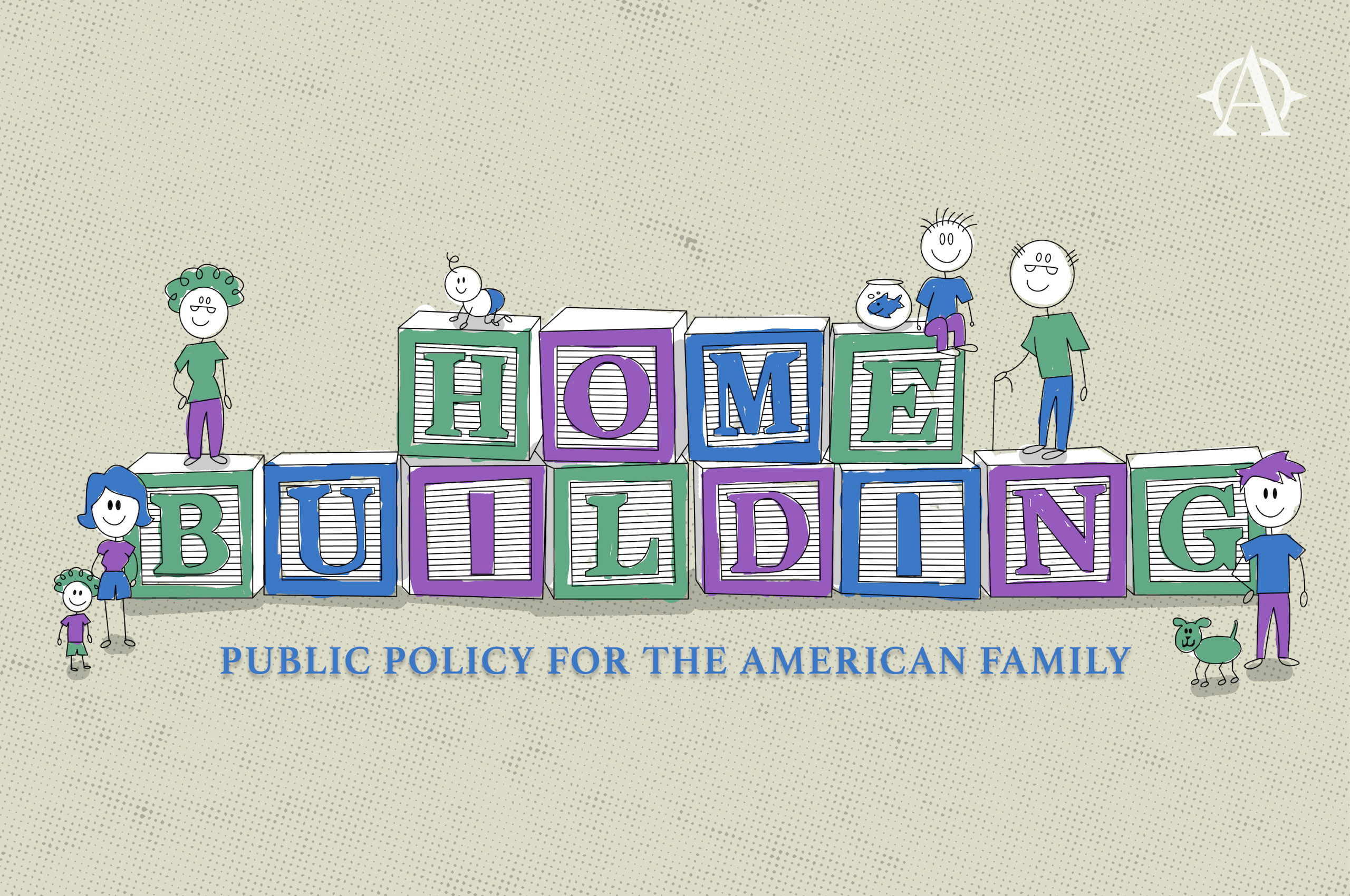
RECOMMENDED READING
Conservatives have a persistent problem: they often don’t know what it is they want to conserve. This bears on the burgeoning discussion of family policy. The good news is that the broad center-right appears ready to engage the subject seriously and offer some major policy solutions instead of mere exhortation. “We’re pro-family!” is a disposition not a solution.
So it’s in this context that the proposal put forward by Oren Cass and Wells Kings (the Fisc) is a welcome addition. However, it’s with all due respect to my host that I must disagree with the Fisc in favor of a broad child allowance like that proposed in the Family Security Act. As usual their report is smart, well-researched, and full of helpful insights. But reading the report, I come to a different conclusion. And it’s because I think we’re trying to solve for different problems. The predicate to determining the best policy is defining the goal. We all agree, I think, that the challenges facing most Americans who want a family are big enough that we need something better than the existing policy approach. But what exactly are we trying to achieve and how do we measure success?
I agree with their premise that we need to revitalize the American social compact. But the way to do that isn’t by creating a needless link between wage-work, having children, and receiving this broadly necessary allowance. I realize that some people on the right are concerned about the possibility that a child allowance will subsidize or even encourage people to game the system and that some people might even leave the workforce as a result of a child allowance. To the former, I say, who cares? The small group of people who spend their lives gaming America’s welfare system are already doing it and no one is going to go out and have a brood of children just to get the child allowance. And as for the allowance permitting more parents to leave wage-labor to raise their children, well, that sounds like a feature, not a bug.
For conservatives, I’d ask, what is this country’s top priority? Is it keeping as many parents and potential parents engaged in wage-work or is it more children being raised by their parents?
Let me offer this answer: we want more families, more family stability, and more children. The success of family policy should be judged by those criteria. Discussion of the impact on consumption, GDP, wage-work and so forth miss the point entirely. Let me go a step further and suggest that if fewer parents were forced to lean into cubicle culture and were able to have more children and spend more time raising them that the country would be much better off.
Over the past four decades fewer and fewer families have been able to afford a stay-at-home parent. As Cass’s own Cost of Thriving Index demonstrates so well, a single median American income hasn’t been enough to provide a family of four with a home that they own, a car, health insurance, and college tuition for a long time. As a result we’ve redefined what it means to be middle class. The material distinctives are essentially the same, but now it requires two incomes so both dad and mom work. That leaves a parenting gap which either means that people have no children, fewer children than they want, or, in an unfortunate homage to the McKinseyized, globalized economy that wrought havoc on American wages, they outsource childcare to poorly paid third-party services and then to the public schools. Why is there so much pressure for universal pre-K? It’s not because those three, four, and five year-olds need more schooling, it’s because their parents need free daycare. And that’s what’s coming if a child allowance isn’t passed. The real political choice isn’t between a child allowance or nothing. It’s between a child allowance and even more money being spent on expanding the amount of time kids spend in government schools and away from their parents.
The fact that the average American family can’t afford to have a stay-at-home parent isn’t Middle-America’s fault. It’s the fault of American elites who spent decades pursuing policies of globalization and financialization that proletarianized the middle class, beggared the working class, and ravaged interior America. In a better world, a single median wage would be enough to buy a house, raise a family, and provide a traditional middle class life. But until we rebuild a more robust economy that can do that, the more urgent issue is supporting American families and helping them have more kids and raise them themselves. There is nothing more conservative than parents raising their own children. That’s why I think the Fisc, while much better than what we have now, is ultimately insufficient. A broad child allowance like the Family Security Act is closer to what is needed, but even that could be improved upon with an increased allowance to cover birth expenses and perhaps some sort of downpayment assistance to help families with children buy a home.
Over the past few years there has been a lot of discussion about the integrity of America’s borders. A country that can’t enforce it’s own borders isn’t much of a country, they say. That’s true enough. But a country that can’t reproduce itself isn’t much of a country either.
[Note: This comment is from a series of responses to the proposal for a Family Income Supplemental Credit.]
Recommended Reading
Is a New Entitlement Program the Solution for Working Families?
How does the Fisc stack up? Better than a universal child allowance, though I still have concerns.
Reactions to a New Social Compact
Commentators and policy analysts react to our proposal for a Family Income Supplemental Credit.
Government Spending Is Already Too Burdensome
Self-styled conservatives should not be aiding and abetting the push for class-warfare taxation by adding to the collection of proposed tax-rate increases on workers, investors, entrepreneurs, and business owners.













